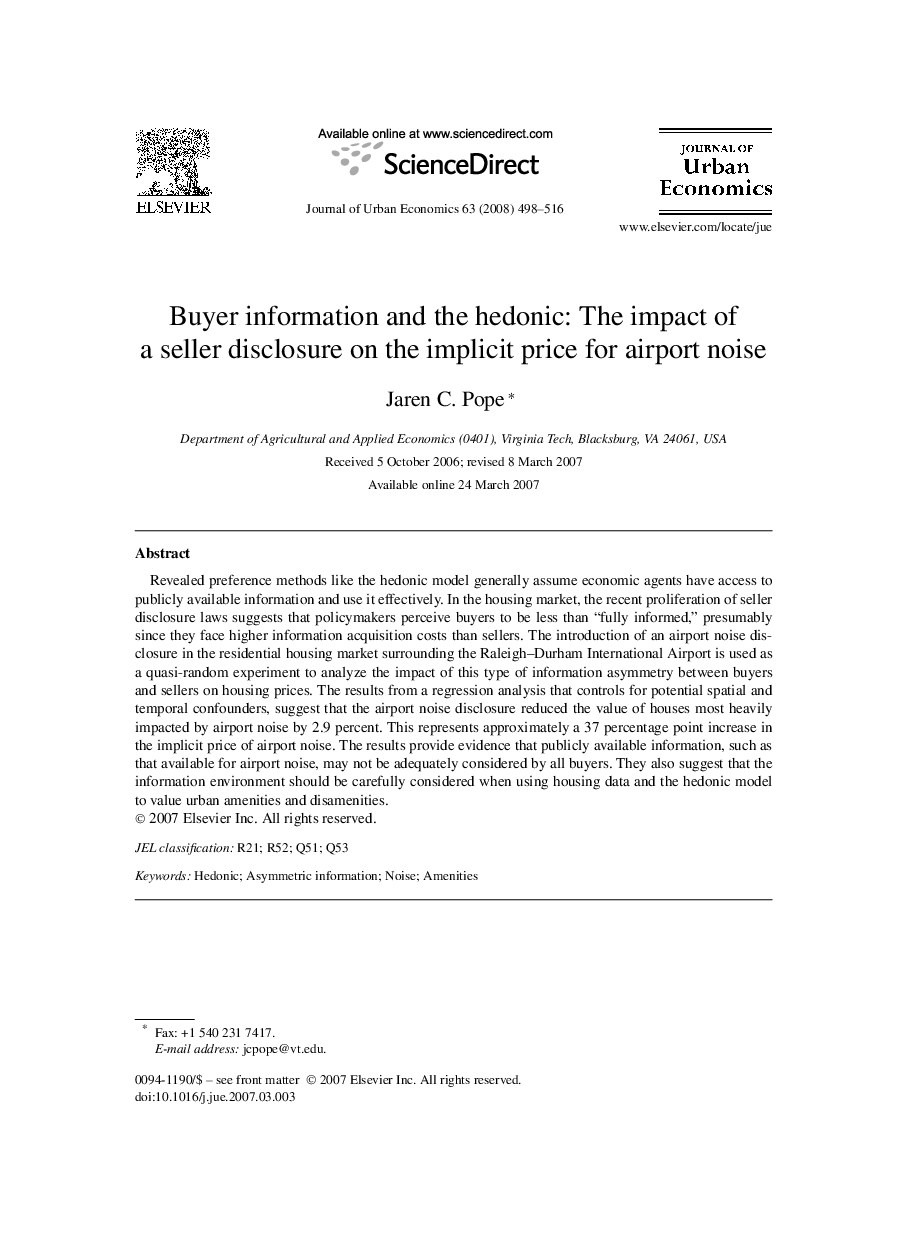| Article ID | Journal | Published Year | Pages | File Type |
|---|---|---|---|---|
| 971404 | Journal of Urban Economics | 2008 | 19 Pages |
Revealed preference methods like the hedonic model generally assume economic agents have access to publicly available information and use it effectively. In the housing market, the recent proliferation of seller disclosure laws suggests that policymakers perceive buyers to be less than “fully informed,” presumably since they face higher information acquisition costs than sellers. The introduction of an airport noise disclosure in the residential housing market surrounding the Raleigh–Durham International Airport is used as a quasi-random experiment to analyze the impact of this type of information asymmetry between buyers and sellers on housing prices. The results from a regression analysis that controls for potential spatial and temporal confounders, suggest that the airport noise disclosure reduced the value of houses most heavily impacted by airport noise by 2.9 percent. This represents approximately a 37 percentage point increase in the implicit price of airport noise. The results provide evidence that publicly available information, such as that available for airport noise, may not be adequately considered by all buyers. They also suggest that the information environment should be carefully considered when using housing data and the hedonic model to value urban amenities and disamenities.
